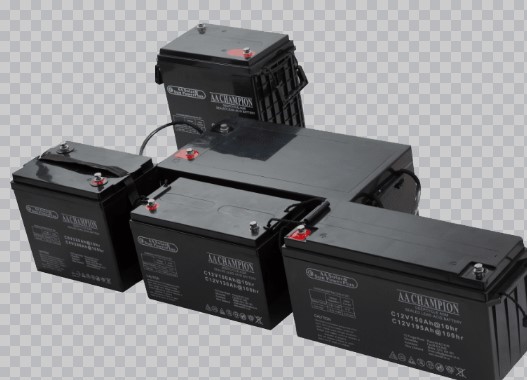
Types of Deep Cycle Batteries and Their Applications
Battery technology has come a long way over the years, with advancements in rechargeable batteries and their applications. One of the most popular types of rechargeable batteries is the deep cycle battery. This type of battery is commonly used in various applications, from powering golf carts to providing backup power for off-grid solar systems.
A deep cycle battery is designed to be discharged and recharged repeatedly over its lifespan, making it a reliable source of power for long-term use. Unlike traditional car batteries that are designed for starting an engine and then recharging while driving, deep cycle batteries are designed for steady and sustained power delivery.
Types Of Deep Cycle Batteries
There are several types of deep cycle batteries available on the market today, each with its unique properties and applications. Let’s take a look at some of the most common types of deep cycle batteries:
Flooded Lead-Acid Batteries
Flooded lead-acid batteries, also known as wet cell batteries, are one of the oldest types of rechargeable batteries available. They have been used for decades in various applications, including renewable energy systems and golf carts. These batteries are made up of lead plates submerged in an electrolyte solution, typically sulfuric acid. They require regular maintenance, such as adding distilled water to the cells, and can emit potentially harmful gases while charging.
Sealed Lead-Acid Batteries
Sealed lead-acid batteries are similar to flooded lead-acid batteries but are sealed, making them maintenance-free. They are commonly used in applications where regular maintenance is not feasible, such as in marine and RV applications. However, they have a shorter lifespan compared to flooded lead-acid batteries.
Gel Batteries
Gel batteries use a gel-like electrolyte instead of a liquid, making them spill-proof and vibration-resistant. This makes them an ideal choice for off-grid solar systems and other applications where safety is a concern. They also have a longer lifespan compared to flooded lead-acid batteries, but they are more expensive.
AGM Batteries
AGM (Absorbent Glass Mat) batteries use a fiberglass mat between the lead plates to absorb theelectrolyte, making them spill-proof. They are maintenance-free and can handle deep discharge cycles without losing performance. These batteries are commonly used in high-performance applications such as electric vehicles and marine vessels.
Applications of Deep Cycle Batteries
Deep cycle batteries have a wide range of applications due to their ability to provide reliable power over an extended period. Here are some common applications where deep cycle batteries are used:
Renewable Energy Systems
Deep cycle batteries are an essential component of off-grid renewable energy systems, such as solar and wind power. They store the excess energy generated by these systems during peak production hours and then release it when needed. This allows people living in remote areas to have access to reliable electricity without being connected to themain power grid.
Marine and RV Applications
Deep cycle batteries are commonly used in marine and RV applications, providing a reliable source of power for lighting, appliances, and other electrical systems on board. They can also be used as a backup power source when the main engine or generator is not running.
Golf Carts and Electric Vehicles
Deep cycle batteries are the power source for electric vehicles, such as golf carts and electric cars. These batteries provide sustained power for extended periods, allowing these vehicles to run efficiently without the need for frequent recharging.
Backup Power
Deep cycle batteries are also commonly used as a backup power source for homes and businesses in case of a power outage. They can be connected to a solar or wind power system or charged from the main grid to provide emergency power when needed.
Conclusion
Deep cycle batteries have revolutionized the way we use and store energy. With advancements in battery technology, these batteries continue to become more efficient and reliable, making them an essential component of various applications. Knowing the different types of deep-cycle batteries and their applications can help you choose the right battery for your specific needs. Whether it’s for renewable energy systems, marine applications, or backup power, deep cycle batteries are a reliable and sustainable solution for powering our modern world. So, be sure to consider this type of battery in your next portable power purchase!




